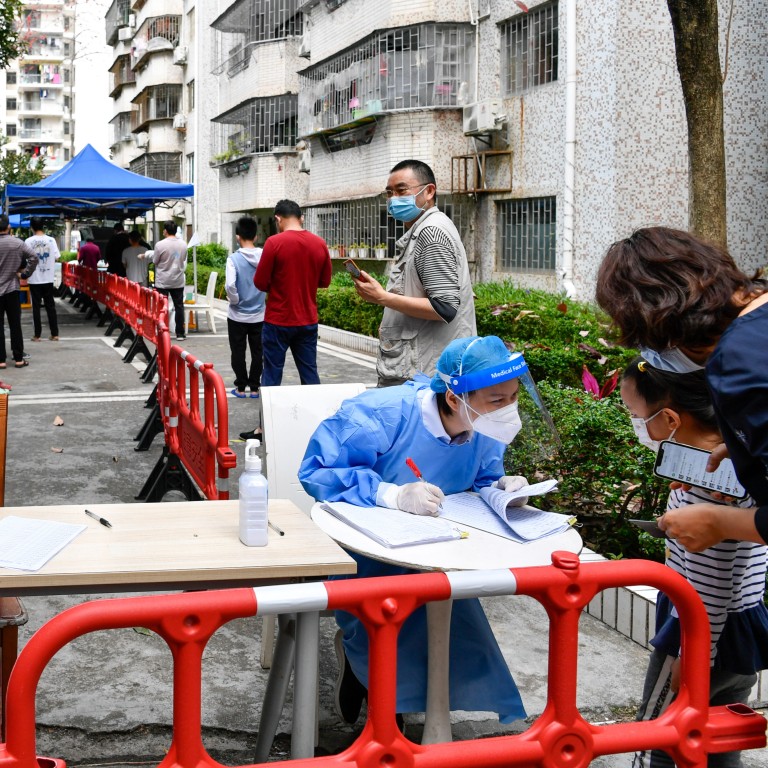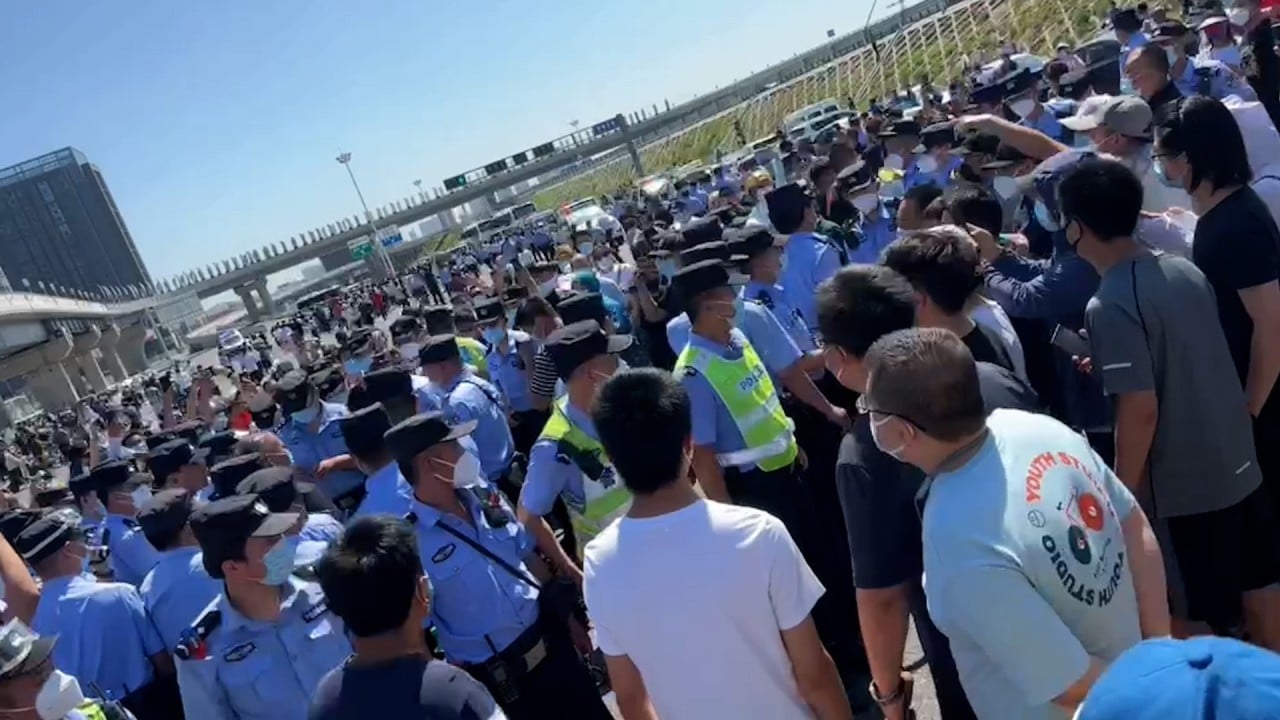
Coronavirus: Chinese factory hub Shenzhen shuts down Hong Kong border district for 3 days
- Wholesale markets, cinemas, public venues in Futian district to be shut until Monday at least
- Some bus and subway lines have been suspended, with window for mandatory negative Covid-19 test report halved to 24 hours
The Shenzhen municipal health commission said all bars and parks would be shut in Futian district, and public events suspended, after nearly a dozen local cases were found over Friday and Saturday.
Shenzhen reported seven local cases, five of which were symptomatic, on Friday and four local asymptomatic cases on Saturday. All of the cases were found in Futian district, except for one case in Luohu district on Saturday.
Some bus and subway services have also been suspended in the district, home to around 1.55 million people and one of the world’s largest electronics markets. Restaurants are limited to 50 per cent of capacity.
Daily Covid-19 nucleic acid test results have now become necessary for using public transport or entering public venues in Futian, after the testing window for negative reports was shortened from 48 hours to 24.
Shenzhen steps up searches near Hong Kong border to stop Covid-19 cases
The latest restrictions in Shenzhen, a city of 17.5 million that saw a sudden weeklong lockdown in March, underscore the challenges of trying to stamp out the highly transmissible Omicron variant as China sticks to a “dynamic zero-Covid” policy.
Strict containment measures are part of China’s continued adherence to its zero-Covid policy, which aims to eliminate all outbreaks. However, while the curbs may have reduced the spread of infections, they have also fuelled frustrations among both local and international businesses and taken a heavy toll on the economy.
A Futian resident who did not want to be named said his community had been designated as a “controlled” area for a week from June 18, after one case was detected.
However, locals were concerned when they were told not to leave their homes during that period.
Under the Guangdong provincial government’s definition of a “controlled” area, the second in a three-tier Covid-zoning system, residents can leave their homes and move around within the community.
“We raised questions about the regulations of the controlled zone to the local authorities. But no one can tell us why the municipal regulation is not consistent with the provincial government’s.”
Chinese fact checkers take on the Covid infodemic – a rumour at a time
Brian Miller, chief executive of Easy China Warehouse in Shenzhen’s Baoan district, said measures such as mandating negative coronavirus test results in getting around many parts of the city had been effective in preventing extensive lockdowns.
Miller’s warehouse near the city airport has been operating as usual, as the restrictions only apply to areas where Covid-19 cases have been found, he noted.
“I think it’s been extremely effective in keeping Shenzhen operating normally,” said Miller, a US national whose firm offers warehousing and third-party logistics services for e-commerce sellers.
“I think Shenzhen is testing policy, it could be a model that the rest of China might use, to keep Omicron contained if it continues with the zero-Covid policy.”
However, Miller also noted that the strict curbs had placed a financial burden on business owners and put off people from travelling in and out of China, which might have a longer-term impact on domestic manufacturing.
‘Sale’ signs mushroom in Shanghai fashion store windows, but few are buying
“It’s much harder to do business in China,” he said. “I think a lot of companies are looking at alternatives for manufacturing. If you are in the US, you might look at Mexico or possibly other places within Southeast Asia. The expat community is generally frustrated with the policy.”
“I haven’t left [China] for three years,” Miller added. “One of the reasons why I haven’t left is not only because of the border [restrictions]. I’m just worried that there might be some policy that might not allow me to come back in, as a foreign national.”


